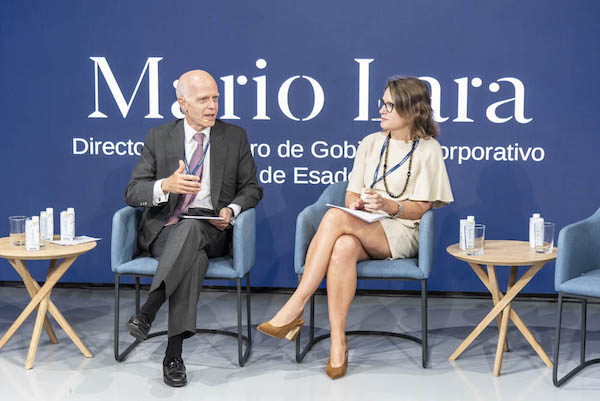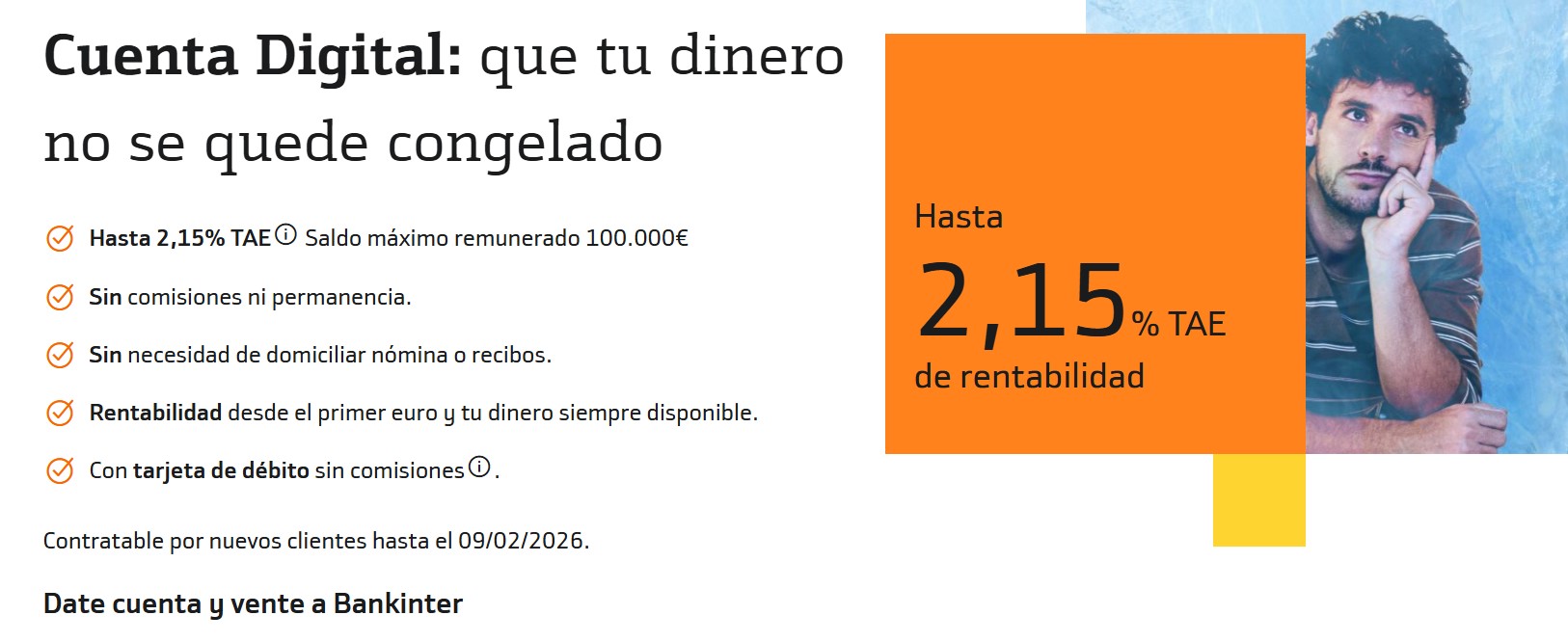The Esade Alumni Club of Directors explored how boards of directors can lead the transition towards more sustainable business models with examples from the food industry, the tourism sector, and transportation
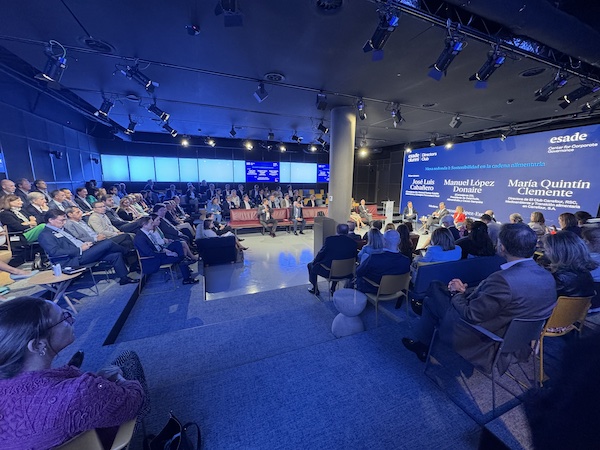
The participants, including CEO’s, directors, and sustainability experts, concurred that sustainability has become a crucial factor in long-term business success. It is no longer just a choice but an imperative driven by the increase in regulations, consumers’ demands, and social awareness.
Millán Berzosa (Consejeros’23), member JD Club Consejeros, reports on this meeting.
Sustainability in the food chain
The first roundtable at the meeting analyzed a key sector: the food chain. José Luis Cabañero, the founder and CEO of Eatable Adventures, highlighted the urgency of bringing sustainability into business models and underscored the connection between sustainability and long-term profitability: “Sustainability is a risk-management tool that increases corporate value and should help with the company’s future resilience. It should always be on the board’s agenda,” he said. He then introduced the concept of “climate resilience” and highlighted how sustainability increases business value using recognized frameworks.
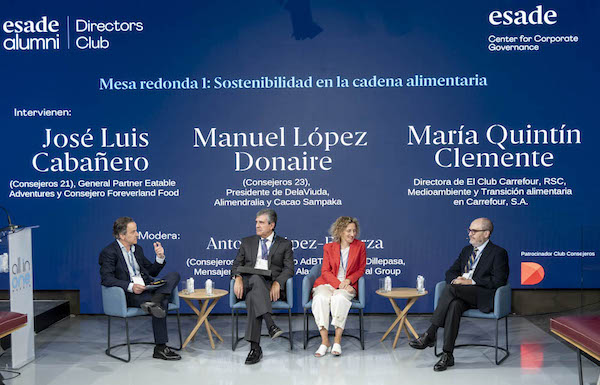
Next, Manuel López Donaire, president of Delaviuda, stressed the importance of solid governance to promote sustainability: “All the board members have to be well trained in governance and should balance complementarity in the skills matrix to make the board sustainable,” he said. He also shared his innovative approach to having major shareholder board members “in the training process,” his personal experience, and his stint at the helm as president of Delaviuda, stressing the need for board members to have training in governance. He emphasized that internationalization may foster sustainability and stressed the importance of senior management’s commitment. This is a vision of family businesses in which there is a genuine interest in the highest standards.
María Quintín Clemente, director of El Club Carrefour, talked about the importance of having tangible sustainability indicators and the different areas that Carrefour manages, including climate, social, and community, with customers as an independent area, since they are an important specific community. She also underscored the need for profiles on the board that are representative of society, as well as the importance of commitment.
There was a consensus that customers are seeking quality and good prices in the short term, even though sustainability is expected to weigh more heavily in decisions. Quintín Clemente pointed out that people under 30 and over 65 are the most convinced about sustainability. “Sustainability appeared as a purchasing criterion for the first time last year, so customers do value it, although they don’t want to pay more for it.”
In the final recapitulation, we wanted to stress the importance of the board keeping our feet on the ground and acknowledge the increasing importance consumers are attaching to these issues, as well as the fact that creating CSR indices tied to incentives helps by turning goals into quantifiable financial metrics. The moderator of this roundtable was Antonio López-Esparza (Consejeros 24).
The board’s new obligations within the sustainability framework
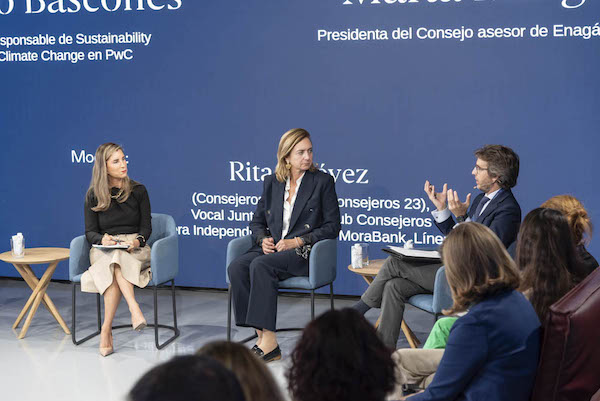
Next, Rita Estévez (Consejeros’17/ESG Consejeros’23); Pablo Bascones, the partner in charge of Sustainability and Climate Change at PwC; and Marta Margarit, the chair of the board at Enagás Renovable, analyzed the new requirements of the regulatory framework on sustainability, including the CSRD (Corporate Sustainability Reporting Directive), which has been the subject of so many debates in recent months. It is actually a management regulation that goes beyond “appearances” (PwC’s terminology) or “disguises” (KPMG terminology) of reporting rules. The regulation is here, and, in fact, large companies are already reporting on the regulation this year for next year.
Pablo Bascones underscored the fact that the CSRD is more than a report; it is management and due diligence in the context of a world full of caveats, and he stated that “the purpose of this regulation is for organizations to transform, for us to change the way we reflect.” The CSRD will come with costs, because it affects many of the organization’s departments, and the audit costs are also considerable, but it is important to connect the metrics with the financial return. “For example, when we talk about the circular economy we should be talking about savings in waste management; when we talk about lowering job absenteeism this should transfer to increased productivity,” Bascones said. After all, beyond complying with directives, keeping the organization’s ethical principles and culture is even more important.
Marta Margarit’s perspective stressed the importance of integrating sustainability into all levels of the organization. “The fact that sustainability is embedded in the organization’s culture does not mean that it is part of the board’s agenda,” she reminded listeners. Given her experience at Enagás Renovable, as well as at COSBAR, she noted the obligations that unlisted companies will have regarding the directive starting in 2026, and the fact that the CSRD applies to everyone. But she also highlighted the opportunities it offers, such as employee satisfaction and talent retention. “The board is in charge of making sure that things are done right, and today ‘right’ means that they are done sustainably,” she said. She also said that the board should be challenged and could have risk matrixes with mitigation included in the contracts.
Rita Estévez stressed that resources are needed, both human resources and investments, to comply with the regulation. She said, “The CSRD is the responsibility of the board, given that it has the ultimate responsibility for the company.”
Sustainability in the tourism and mobility sector
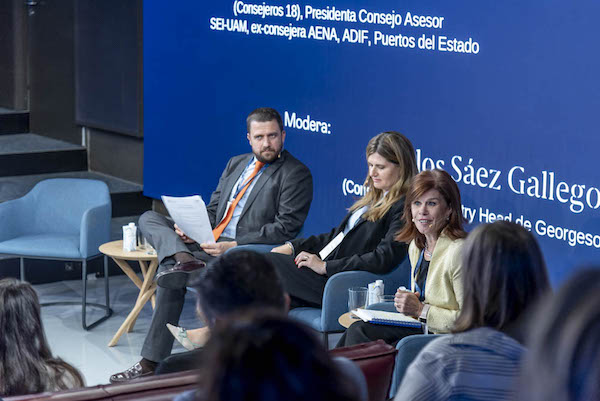
Next, Carlos Sáez Gallego (Consejeros’22), country head of Georgeson, led the conservation on the tourism and transportation sector along with Eva Ballesté (Consejeros’19), chair of the advisory board of the SEI-UAM and former board member of AENA, ADIF and Puertos del Estado; and Montserrat Trapé, independent board member of Meliá Hotels International.
Eva Ballesté stressed the need for a strategic approach to sustainability. “Not bearing sustainability in mind means ignoring operating risks that affect the company’s gross margin.” She also said that it is no longer enough to tell what is being done but also how it is being done. She pointed out some of the sector’s challenges, like electrification and the need to produce more with less, drawing from new technologies like virtual reality for prototypes. And she called for more public-private cooperation with universities.
Montserrat Trapé, in turn, highlighted the role of the company’s DNA in implementing sustainable practices: “Family DNA is not incompatible with sustainability,” she said. She also stressed the importance of the board looking for ways to continuously improve and the Appointment and Compensation Committee’s role in retaining talent. She further talked about the “Travel for Good” strategy, which connects sustainability with transparency and positive value in the community.
Finally, Mario Lara, director of the Esade Center for Corporate Governance, interviewed Rosa García Piñeiro, an independent board member. This last part focused on the sustainability challenges companies are facing, from human resources to food security, and how to integrate sustainability into the business’s strategy and operations. Piñeiro underscored the importance of putting sustainability on the boards’ agenda, since they have knowledge of the business, and the development of partnerships needed for innovation and long-term value: “Planning sustainability 10 to 20 years from now is essential for investments,” she said. However, “the key to managing sustainability is familiarity with the business.”
As Mario Lara said to close the event, “in ESG, without the G there’s no E or S: governance for good.”
